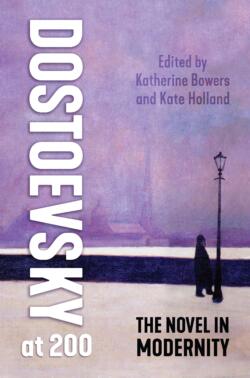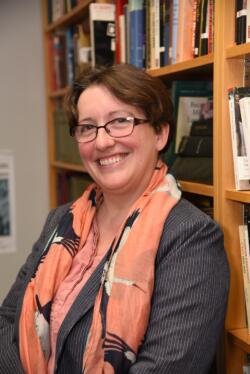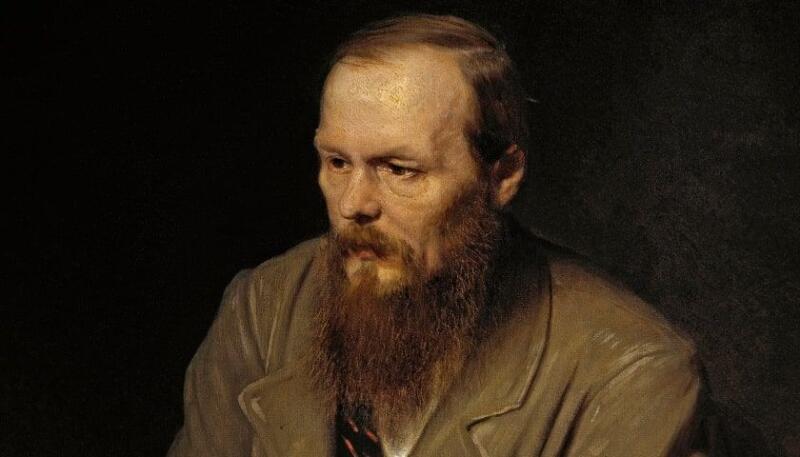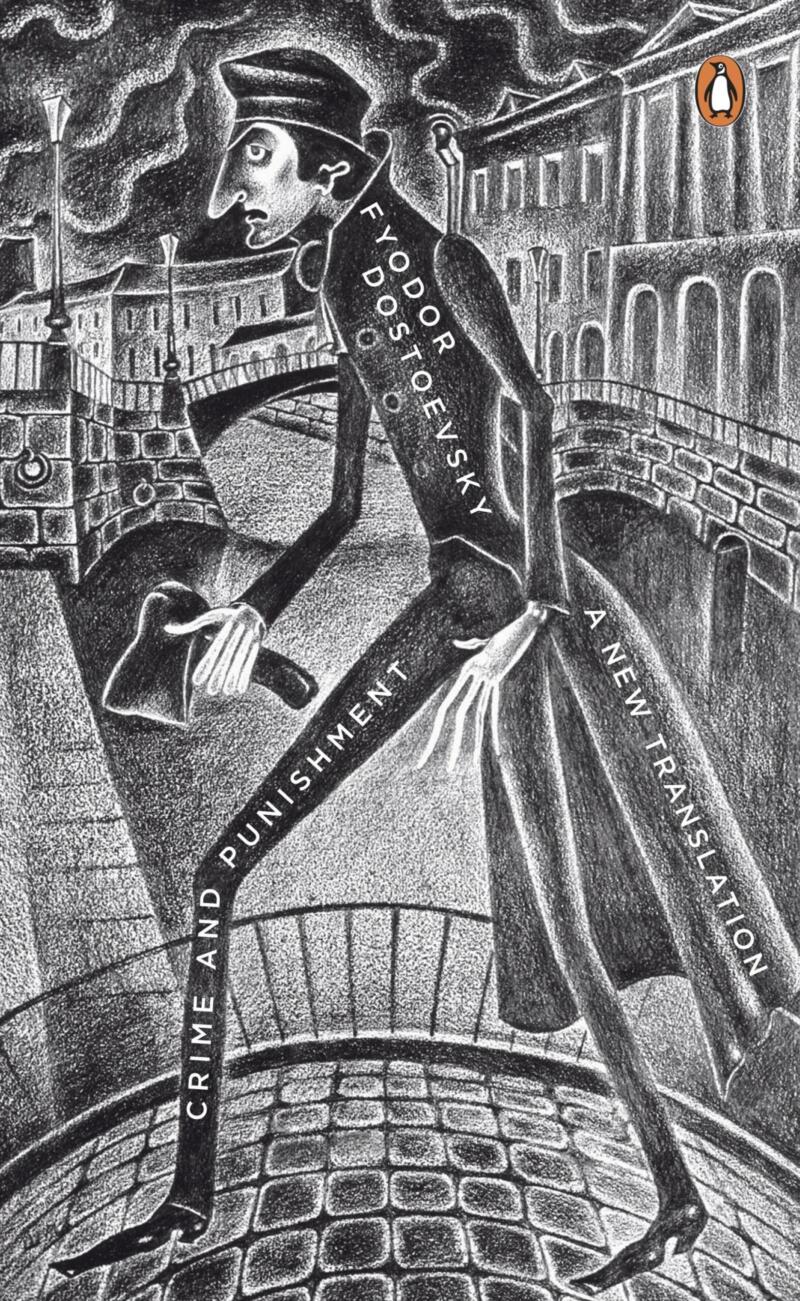1266 Talking of Raskolnikovs
Dostoevsky at 200: The Novel in Modernity
by Katherine Bowers and Kate Holland (editors)
Toronto: University of Toronto Press, 2021
$75.00 / 9781487508630
Reviewed by Sheldon Goldfarb
*
 Read The Brothers Karamazov, people say. It will teach you the meaning of life. The reviewer has heard this sort of thing before, and read Nietzsche and Aristotle and Confucius, not to mention Marx in his youth. Still no closer to the meaning of life, but hope springs eternal. There’s a Dostoevsky course at UBC, and even better the professor has just published a book on Dostoevsky. He can read that and then take the course.
Read The Brothers Karamazov, people say. It will teach you the meaning of life. The reviewer has heard this sort of thing before, and read Nietzsche and Aristotle and Confucius, not to mention Marx in his youth. Still no closer to the meaning of life, but hope springs eternal. There’s a Dostoevsky course at UBC, and even better the professor has just published a book on Dostoevsky. He can read that and then take the course.
But wait a minute, isn’t there a conflict of interest there: reviewing the book, then taking the course? He asks the editor, who wants to think about it over a coffee. Hmm. The book, by the way, does not reveal the meaning of life, though maybe it teasingly suggests there might be something in Dostoevsky that will. There’s talk of death and modernity, slaps and duels, existential anxiety, exceptional characters — yes, those exceptional, extraordinary characters like Raskolnikov, able to act like Supermen (no, that’s Nietzsche), but full of power, or so they think — but why? Where does that power come from?

Ah, says one essay in this book, that we do not know. Dostoevsky specializes in characters who come from nowhere and go nowhere; they exist in a timeless present, fighting adventures in their souls, expressing themselves through their own words: no omniscient narrator to interpret them for us, and thus they are more, or perhaps less, real than characters in Tolstoy or Dickens. They are rootless, frustrated characters: is that the meaning of life?
Dostoevsky is the novelist of crisis, if he is even a novelist at all; he is certainly not a novelist of sprawling historical sagas, marriage plots, or young men discovering careers. But these are the commonplaces of Dostoevsky studies, says the last essay in this book, and this book wants to go beyond that, beyond the spiritual meanings expressed in the text to a study of how those meanings are expressed: how does Dostoevsky construct his texts? By using sensory perceptions and having characters eavesdrop on each other, rejecting the marriage plot and instead focusing on moments of crisis.

And in those moments of crisis is there meaning? Perhaps, but that is not what this book wants to focus on; it doesn’t want to talk about Dostoevsky’s effects or his themes or the nature of the meaning he finds in the universe; it wants to talk about how he achieves those effects, what techniques he uses, or what currents of thought he is responding to: the nineteenth-century physiologists and statisticians, with their focus on the laws of nature and the Average Man, when Dostoevsky doesn’t care about the Average Man; he wants to talk of Raskolnikovs, who think they are so superior they can commit murder and then are frustrated because they can’t reveal their achievement to anybody.
This is an academic book, after all, aimed at Dostoevsky specialists who already know what Dostoevsky has to say and want to analyze his texts rather than expound his message — as an academic book should. It is interesting to learn that academics nowadays are focused so much on form and technique; it used to be image clusters. But the general reader, or the reader seeking philosophical illumination, would probably rather hear the message. If the reviewer does take that course, he will be looking for that and for more on The Brothers Karamazov, which is mostly excluded from this book, which is intended to focus on all the works leading up to The Brothers Karamazov.
If you are doing a paper on the pawnbroker in Crime and Punishment, you might consult this book for its essay on her “greasiness.” Or if you are researching the use of Gothic elements, you might look at the essay on death and horror in The Idiot. But for those not writing papers or doing research, it might be better just to sign up for Russian 412.

*

Sheldon Goldfarb is the author of The Hundred-Year Trek: A History of Student Life at UBC (Heritage House, 2017), reviewed here by Herbert Rosengarten. He has been the archivist for the UBC student society (the AMS) for more than twenty years and has also written a murder mystery and two academic books on the Victorian author William Makepeace Thackeray. His murder mystery, Remember, Remember (Bristol: UKA Press), was nominated for an Arthur Ellis crime writing award in 2005. His latest book, Sherlockian Musings: Thoughts on the Sherlock Holmes Stories (London: MX Publishing, 2019), was reviewed here by Patrick McDonagh. Originally from Montreal, Sheldon has a history degree from McGill University, a master’s degree in English from the University of Manitoba, and two degrees from the University of British Columbia: a PhD in English and a master’s degree in archival studies. Editor’s note: Sheldon Goldfarb has reviewed frequently for The Ormsby Review, most recently books by P.W. Bridgman, George Bowering, Jaime Smith, Jesse Donaldson, Norman Ravvin, George L. Pál, Nicholas Bradley, Sherrill Grace, and Philip Resnick.
*
The Ormsby Review. More Books. More Reviews. More Often.
Publisher and Editor: Richard Mackie
The Ormsby Review is a journal service for in-depth coverage of BC books and authors. The Advisory Board consists of Jean Barman, Wade Davis, Robin Fisher, Cole Harris, Hugh Johnston, Kathy Mezei, Patricia Roy, Maria Tippett, and Graeme Wynn. Scholarly Patron: SFU Graduate Liberal Studies. Honorary Patron: Yosef Wosk. Provincial Government Patron since September 2018: Creative BC
“Only connect.” – E.M. Forster

3 comments on “1266 Talking of Raskolnikovs”